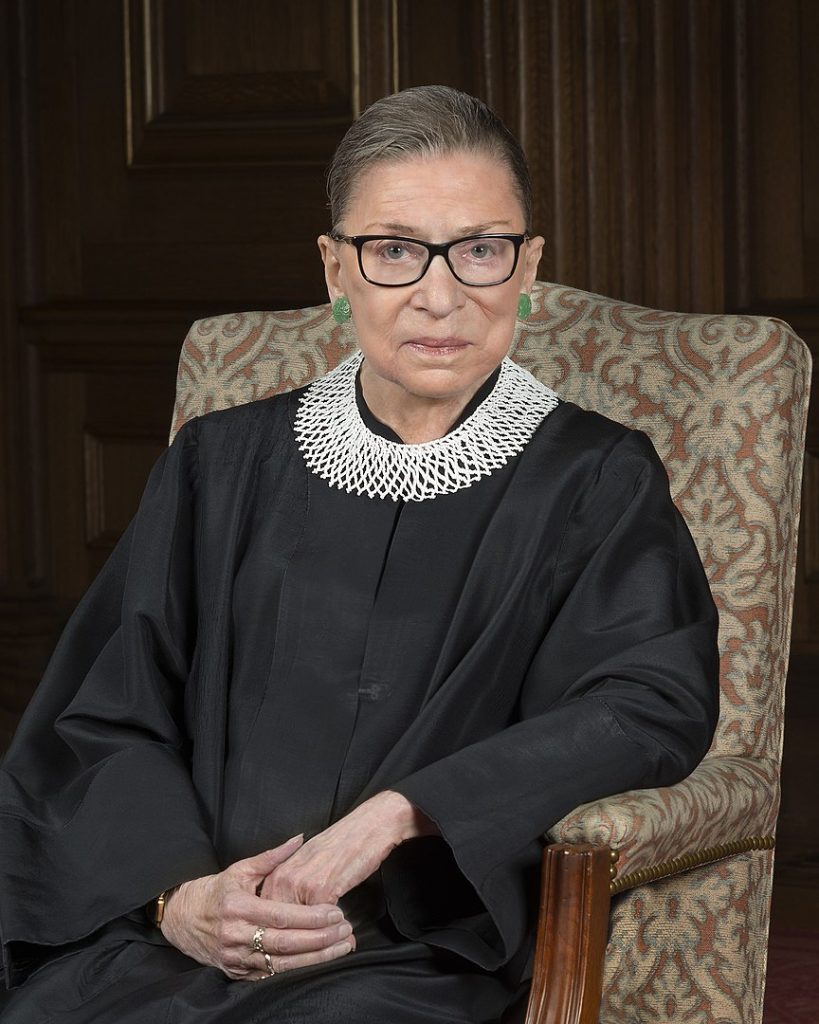United States Supreme Court Associate Justice Ruth Bader Ginsburg passed away last week. She was the second woman to be appointed to the US Supreme Court, and served in the Supreme Court for a term of 27 years. Ginsburg was known as a champion of women’s rights, and has contributed to several landmark judgements on contemporary social issues.
1. Admitting women to the Virginia Military Institute
Ginsburg delivered the opinion of the Court in the case of United States v. Virginia in 1996, which ended the Virginia Military Institute’s male-only admission policy. The judgement stated that the Institute’s admission policy violated the law of equal protection given under the United States Constitution.
In her opinion, Ginsburg wrote that generalizations about ‘the way women are’ and opinions about what is appropriate for most women, do not justify denying opportunity to talented and capable women. She said that women seeking and fit for the Institute’s quality education cannot be offered anything less, and that it is the government’s duty to give them equal protection.
2. Rights of people with disabilities
The Supreme Court’s 1999 judgement in Olmstead v. L.C. was a victory for people with disabilities. In this case, two women suffering from mental illnesses were forced to stay in a psychiatric institution, even after medical professionals cleared them for a “community-based programme”.
Ginsburg stated that under the Americans with Disabilities Act, people with mental disabilities must be placed in community settings rather than in institutions when: a) health professionals agree that community placement is appropriate, b) the transfer from institutional care to the less restrictive community setting is not opposed by the affected person, and c) the transfer can be reasonably accommodated, after considering government resources and the needs of others with mental disabilities.
3. Allowing same-sex marriages
In Obergefell v. Hodges (2015), Ginsburg agreed with the majority of Judges to deliver a judgement that overturned a ban on same-sex marriages in the US. She stated that the idea of marriage has changed and that marriage today is different from what it used to be under the law.
4. Abortion rights
In the 2016 judgement of Whole Woman’s Health v. Hellerstedt, Ginsburg was part of the Supreme Court bench that struck down Texas’ Omnibus Abortion Bill, popularly known as H.B. 2. This abortion law imposed a number of regulations on abortion clinics, seemingly designed to discourage women from getting abortions.
In her opinion, Ginsburg stated that H.B. 2 could not genuinely protect the health of women, and that the law would simply make it more difficult for women to obtain abortions. She said that when the government severely limits access to safe and legal abortion procedures, women in desperate circumstances may resort to unlicensed medical practitioners at great risk to their health and safety.
5. Restricting excessive fines
In 2019, Ginsburg delivered the judgement in Timbs v. Indiana to hold that the legal ban on excessive fines applies to States and local governments as well, and not just the federal government. The Eighth Amendment to the United States Constitution states that excessive fines shall not be imposed, and prohibits the federal government from imposing harsh penalties on criminal defendants, either as the price for obtaining pretrial release or as punishment for a crime after conviction.
Ginsburg wrote that the protection against excessive fines has been a constant shield throughout Anglo-American history. She stated that excessive fines undermine other constitutional liberties and can be used to retaliate against political enemies, or as a source of revenue that is not in service of penal purposes.




